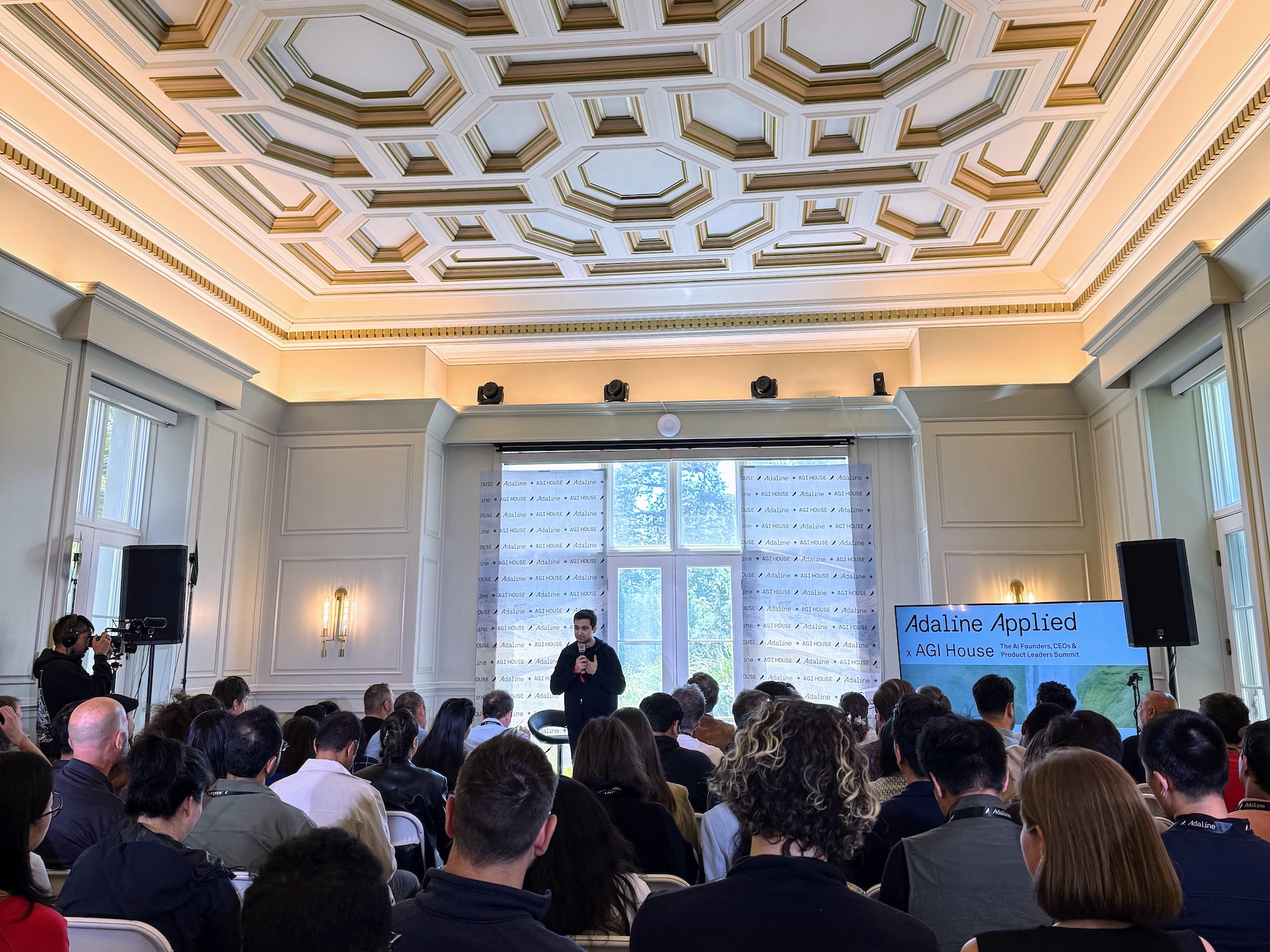Notes from Adaline Applied at AGI House
Last week I attended an AI product summit at the beautiful AGI House on the peninsula. It was a fun day getting exposed to what’s going on the frontier of product and AI. Here are my semi-structured notes.


- The thorniest issue in tool use is identity and authentication
- Authentication bugs are much worse with agents because they can move faster (e.g. in 15 minutes an agent can exfiltrate a lot more data than a human).
- Memory for LLMS will become more critical. MCP-based memory will enable portability across providers.
- Tool descriptions are important, treat them like system prompts. An example of a great tool description is sequential thinking
- Current models fall apart above 5 loaded tools
- Current pattern is to delegate tasks to a sub-agent that’s very well tested against the specific inputs/outputs
- MoE points to further specialization in agent space
- “I’d rather have an agent that does one thing very well.”
- “Tiny teams”
- Can you have super leverage by harnessing a fleet of agents?
- Anthropic’s research into how long can a model complete a task correctly? Currently O(mins) - next step O(10s of mins)
- Proactive agents (I thought this was super compelling)
- Background thread monitoring your life, chimes in when it can be useful.
- There are two types of challenges in AI product right now: ones that will become solved as ai gets smarter, and those that will stay hard
- Meme: every tool came from the abuse of context
- Different software prioritizes different things, like being able to iterate quickly, or better reasoning around the whole system
- Focus on where the handoff points are between humans and AI
- OpenAI is about to launch a platform with value exchange, same as FB did with
their dev platform, which they opened up then two years later rolled back and
slurped up the popular use cases into their platform - Brian Balfour
- The game is to join it, get the distribution, then get off it and take your users with you ASAP
- Brand is associated with a person at the company having an opinion in public in a specific space
- So: be out there and be visible in voicing your opinions as a thought leader and maybe iconoclast in a space
- It helps customers narrow down if their personality matches the brand
- Communication is lossy - holding the entire product in one persons head is super valuable
- User complaints don’t necessarily mean they’re switching
- Focus on what is the users “hell yes” case study
- VCs are starting to focus on “quality of revenue”
- You can build a moat with your good taste
- Being opinionated is a plus for founders